Fastest electric cars in the world 2025
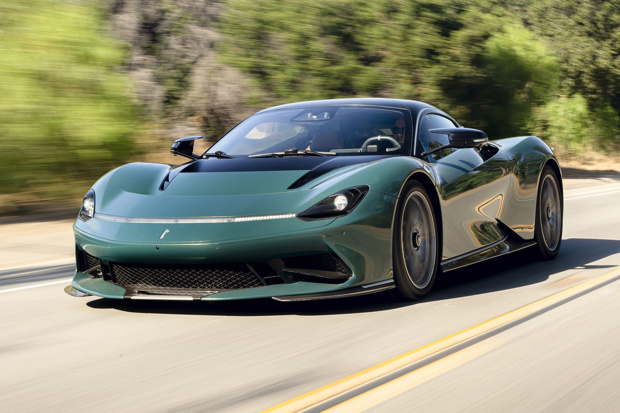
Driving range, charging time and price are the three figures most people concentrate on when looking at a new electric car. For this list, we don't care about any of that, as we go off in search of the fastest electric cars.
This is a world of eye-watering 0-60mph times and scarcely believable top speeds. Thanks to its instant torque, an electric car will race off the line like a whippet chasing after a hare, but unlike our canine friend, the car won't run out of breath or need a drink of water. Some of the cars on our list will hit 200mph with ease, sprinting to 62mph in less time than it'll take you to read this sentence. Take that, whippet.
Okay, having too much fun with your right foot will put a sizeable dent in the car's range estimate, but we suspect that won't matter too much to the buyers of the electric cars on our list. A runway or racetrack will be required if you want to get the best out of these electric supercars.
Here are the 10 cars at the forefront of the race to be the fastest electric car.
Fastest electric cars |
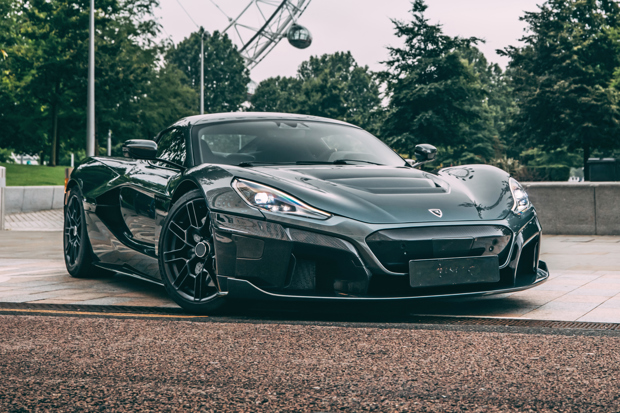
Rimac Nevera
Rimac is a fast-growing Croatian hypercar brand that, in an unprecedented step, has taken over the legendary Bugatti. Considered a European rival to Tesla, the Nevera is a sign of just how exciting this company will become. Only the firm’s second-ever road car, the exotic Nevera nevertheless has a world-beating top speed of 258mph – aided by a colossal power output of 1914hp. The driving range, when you’re not fully experiencing the fastest electric car in the world, is also impressive; it’s capable of over 300 miles between charges. Still, you’d expect something special, given a list price of over £2 million.
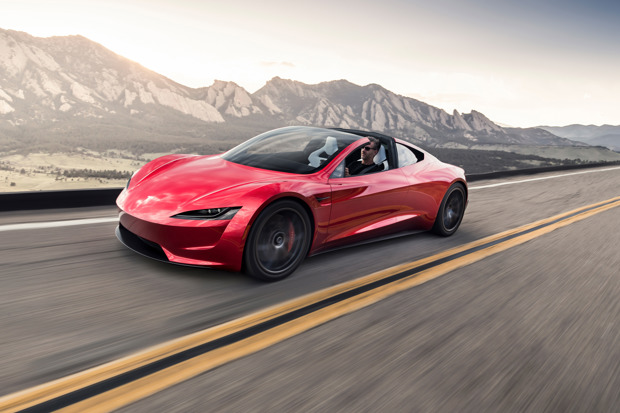
Tesla Roadster
The original Tesla Roadster was the world’s first truly exciting electric car. This second-generation model aims to be one of the world’s fastest EVs – and turn up the dial on excitement accordingly. Tesla boss Elon Musk promises a top speed of more than 250mph: much faster than the Lotus Evija hypercar. Due to enter production in 2025, the Tesla Roadster will be one of the quickest electric cars in terms of acceleration, too. Zero to 60mph takes 1.9 seconds, with 0-100mph in 4.2 seconds and a standing quarter-mile in just 8.9 seconds. Tesla is promising a range of 620 miles, if the Roadster makes production...
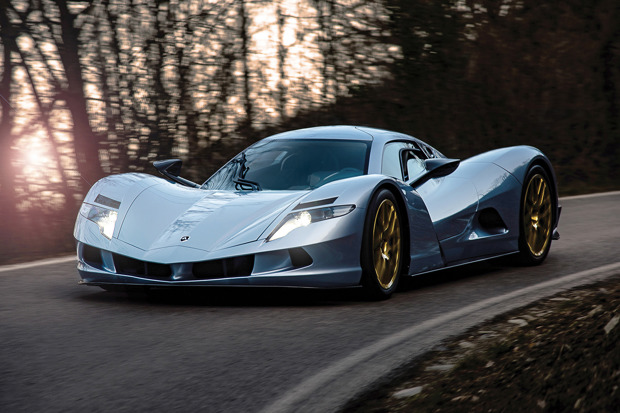
Aspark Owl
The Aspark what? The Aspark Owl, that’s what – a pure electric hypercar from Japan that will be among the world’s fastest cars when it goes on sale. If a top speed of 249mph doesn’t grab headlines, a 0-60mph time of 1.72 seconds certainly will. The Owl already has two electric car world records to its name: the highest average speed over an eighth and quarter of a mile, with figures of 192.03mph and 198.12mph respectively. Aspark also claims a driving range of around 280 miles when not chasing speed records. But it’s unlikely to come cheap, of course, with the company suggesting a list price from around £2.5 million.
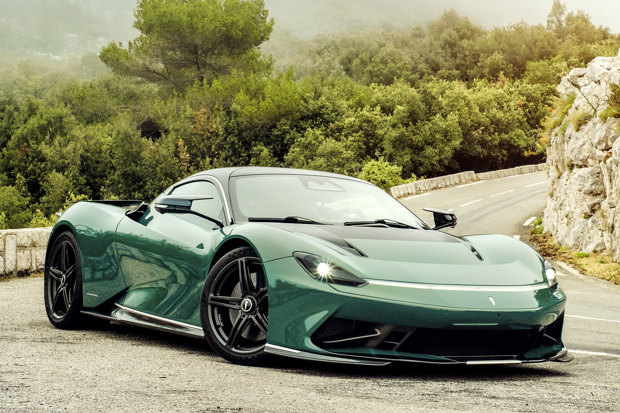
Pininfarina Battista
The Pininfarina Battista is not just one of the world’s most beautiful cars, it is also one of the fastest. The Italian company, famous for designing many classic Ferraris, is claiming a top speed of 217mph – that’s 350km/h in European terms – and 0-62mph in just 1.9 seconds. What’s powering this? Why, around 1900hp, delivered to all four wheels for tenacious traction whatever the speed. Given how the £2 million Battista shares its EV architecture with the Rimac Nevera, we wonder whether Pininfarina will roll out an even faster version in due course. For now, let’s simply step back and gaze at the design of this glorious electric car.
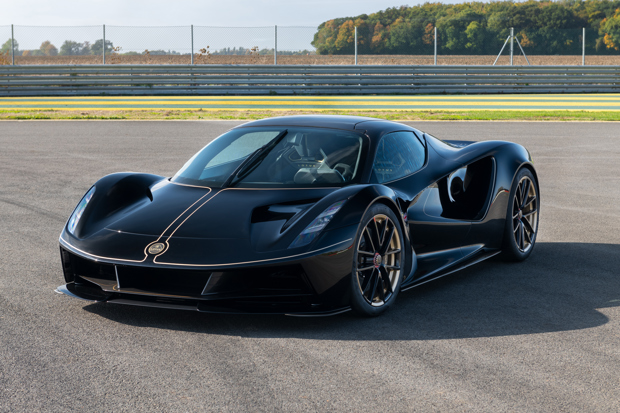
Lotus Evija
Even by the standards of Lotus, a legendary brand in Formula 1 racing, the Evija is a car with a breathtaking set of stats. Four electric motors produce 2039hp – more than any F1 car has ever claimed – and the company expects 0-60mph in well under 3.0 seconds. It is also talking about a top speed of at least 200mph, but expect a figure even higher than this – potentially nudging the Pininfarina Battista – when Lotus finally books a test track suitable for such speeds. Set to be the world’s lightest electric hypercar, and likely one of the best and most rewarding to drive, Lotus also estimates a driving range of around 215 miles. That’s for when owners are sitting back and not trying to experience maximum EV thrills.
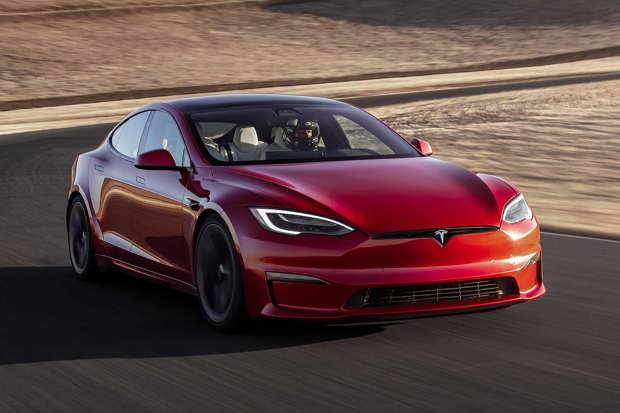
Tesla Model S Plaid
The Tesla Model S is a long-running large electric saloon car. The firm’s first mainstream model, it has got progressively faster and more powerful as the years have passed. In ultimate Plaid guise, Elon Musk has finally seen it crack the 200mph barrier, making it officially the world’s fastest electric saloon. Zero to 60mph takes just 1.99 seconds, yet it is also capable of travelling 373 miles between charges. It’s even (unofficially) set a new Nurburgring lap record. We have to wonder if there’s any more left in the tank for the Model S, though, given the emergence of a fresher new rival, the Lucid Air.
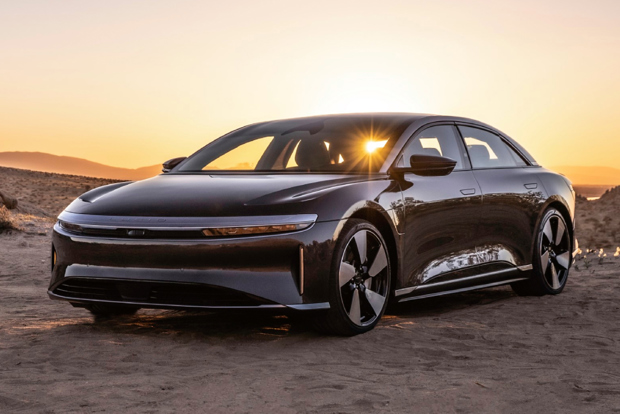
Lucid Air
The exciting Lucid Air is a svelte four-door rival to the Tesla Model S. And the new company is guaranteed attention straight from the off, with a mighty power output of up to 1234hp. It also boasts an unbeatable driving range of up to 516 miles, plus a 0-60mph time of 1.89 seconds. Officially, the top speed is 200mph, a very impressive figure for a four-seat EV. However, in testing, Lucid went even faster; removing the top-speed limiter saw the car achieve a remarkable 235mph on a test track. Now it’s in production, how long before Lucid starts to push the fastest electric car boundaries with ever-quicker Air models?
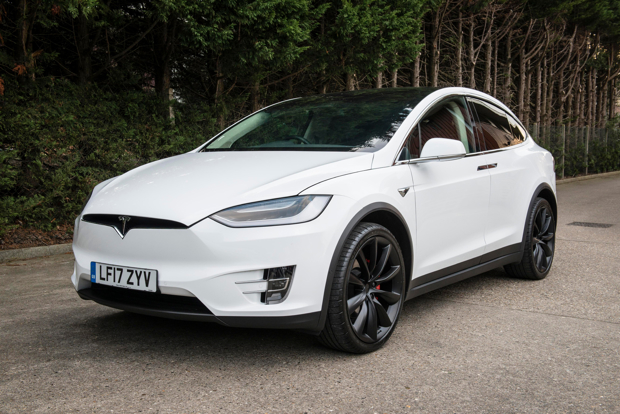
Tesla Model X Plaid
In Tesla-speak, Plaid means ultimate edition, the most extreme of all. With 1020hp, the mighty Model X Plaid certainly lives up to that billing. The firm’s largest car, this all-wheel-drive SUV not only packs the family in with space to spare, but can also accelerate from 0-60mph in as little as 2.5 seconds. And if they happen to be in Germany on a derestricted autobahn, they can sit back and wait for a heady top speed of 163mph to register on the speedo. There are new electric SUVs arriving to challenge Tesla’s fastest electric car crown, such as the BMW iX. For now, though, if you want to go faster than anyone in an electric SUV, you need look no further than the Model X Plaid.
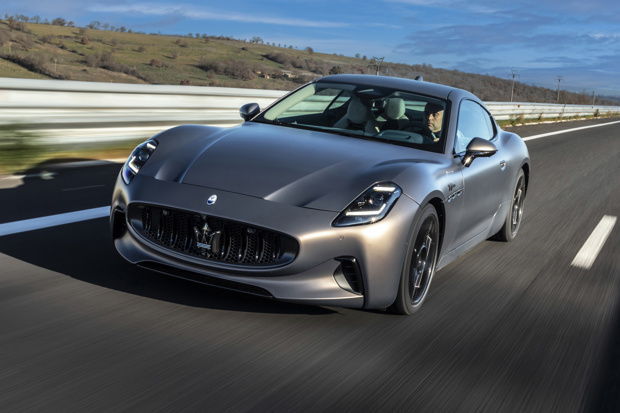
Maserati GranTurismo Folgore
Maserati is a relatively late entrant into the electric market, but its first attempt is turning heads, not least because it wears the svelte lines of the beautiful GranTurismo. The Folgore version sits alongside a petrol model in the GranTurismo line up, and boasts three electric motors (two in the back, one in the front) with a combined 750hp. That equates to a 0-62mph time of just 2.7 seconds, and a top speed of 202mph. All that, and it promises 280 miles to a charge, too.
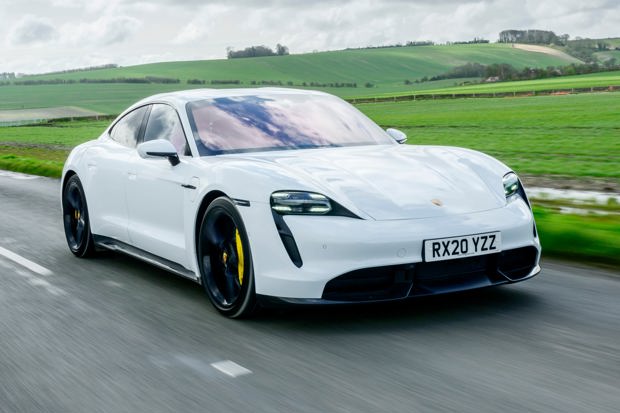
Porsche Taycan Turbo S
The Porsche Taycan range is rocketing up the German sports car firm’s sales charts, thanks to its all-round brilliance. Offered in saloon, Cross Turismo and Sport Turismo guises (the latter both estate cars), it’s the saloon we’re looking at here – and in full-fat Turbo S guise. With a 93.4kWh battery and more than 750hp, it can charge to a top speed of 162mph. Importantly for use on German autobahns, it can also stay there for mile after mile. High-tech 800v charging capability means the Taycan is one of the quickest electric cars to recharge, too. Find a 350kW charger and it will go from 24 miles to 188 miles of range in just 24 minutes.
Why are electric cars so fast?
Unlike traditional petrol supercars, which need large, turbocharged or supercharged engines to achieve top speeds beyond 160mph, electric supercars simply need powerful electric motors, which are much easier to install. They’re so compact, most of the cars on our list have multiple motors, some with one motor per wheel. Add up their combined power and you have enough oomph to charge up the fastest electric car rankings.
Will the fastest electric cars get even faster?
As Tesla’s Elon Musk has proven time and again, it is simple to make an already-fast electric car even faster. Simply swap out the motors and you have an easy hike in acceleration and top speed. This is what makes the fastest electric car rankings so exciting. Now the gauntlet has been thrown down, we expect speeds to become ever higher, and acceleration to be even swifter. The future of driving may be quiet, but it won’t be slow.
Are electric cars fast from 0-60mph?
When you have so much power, ultra-rapid acceleration is a given. Electric cars have set new benchmarks in terms of how quickly cars can accelerate. In fact, they already have the measure of pretty much any regular petrol-engined supercar. The biggest challenge is actually physics, or the small matter of transferring many thousands of horsepower to the ground as effectively as possible. Four-wheel drive, traction systems and modern tyre technology all help here.
Is a used Tesla S a sensible buy?

